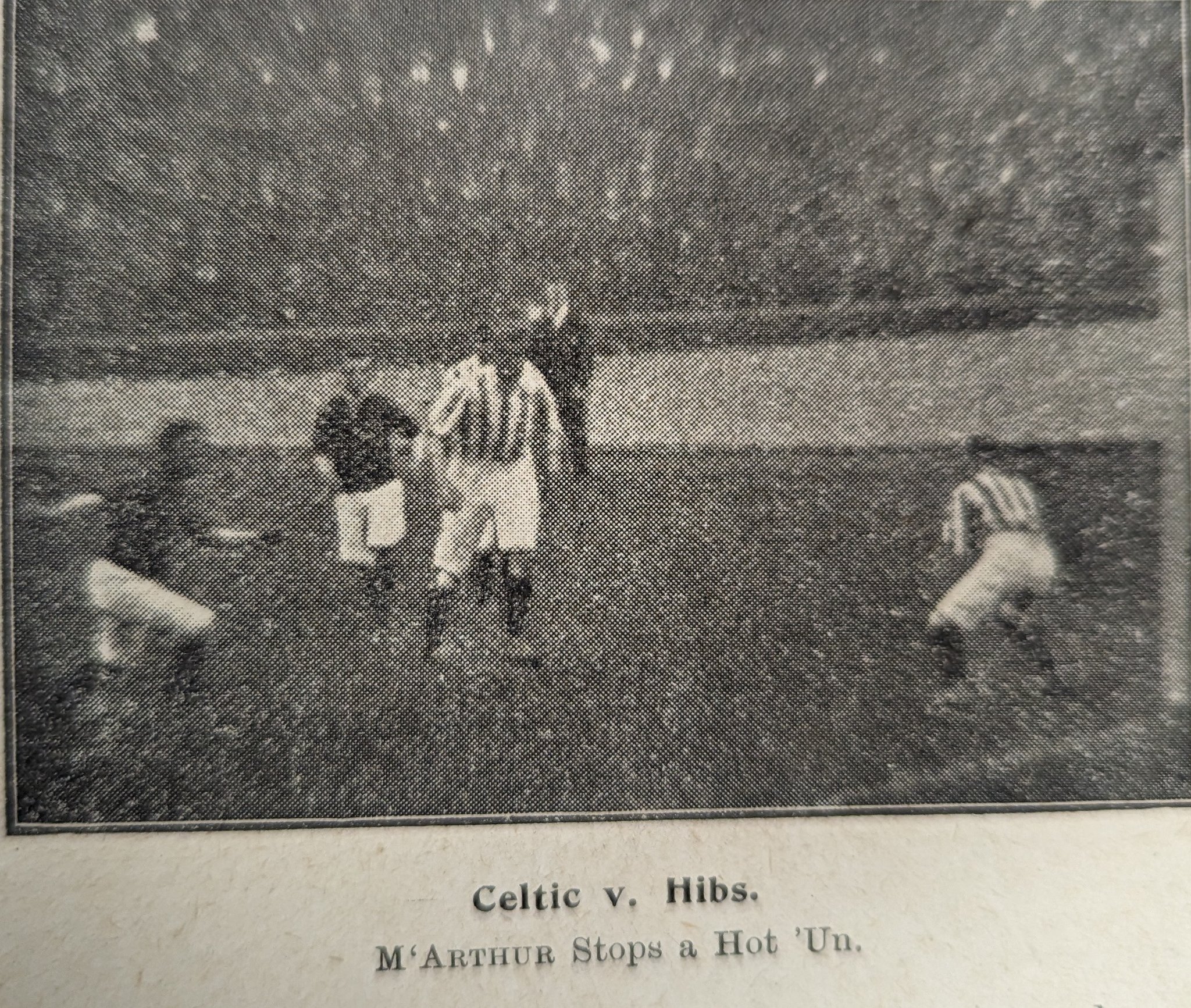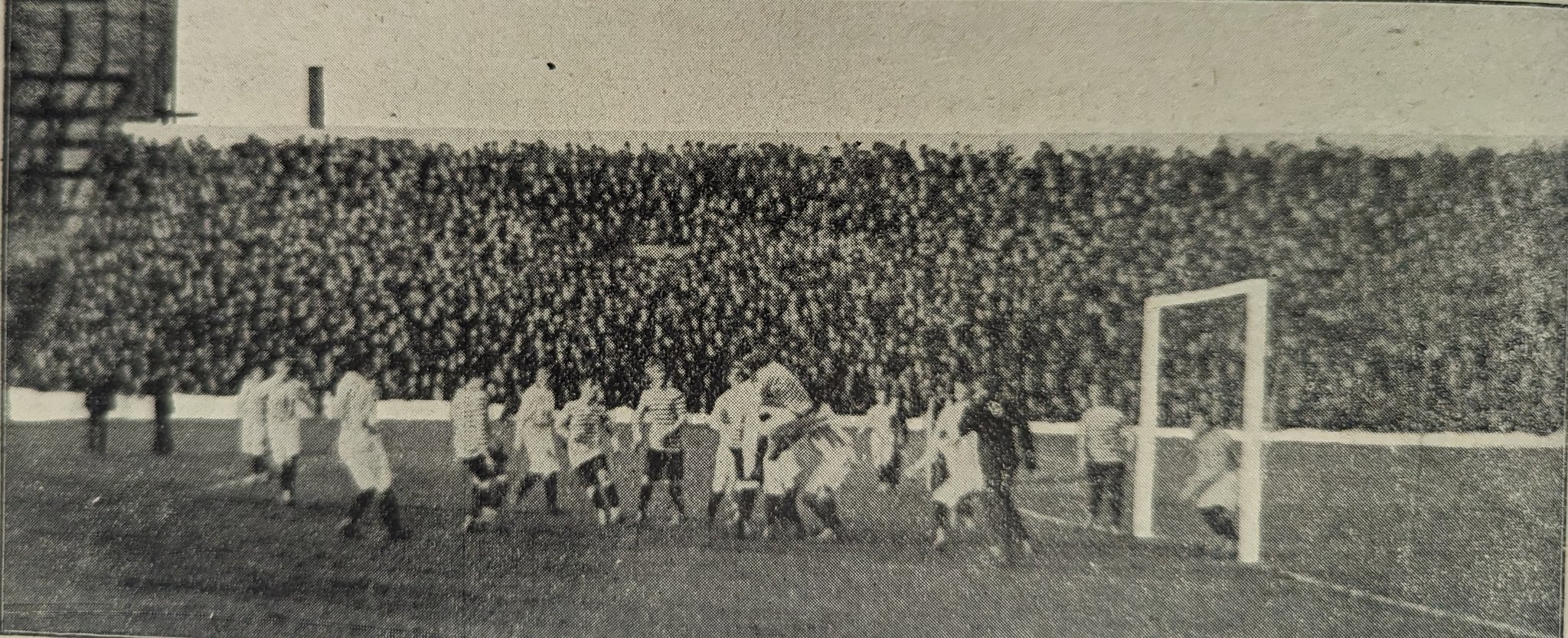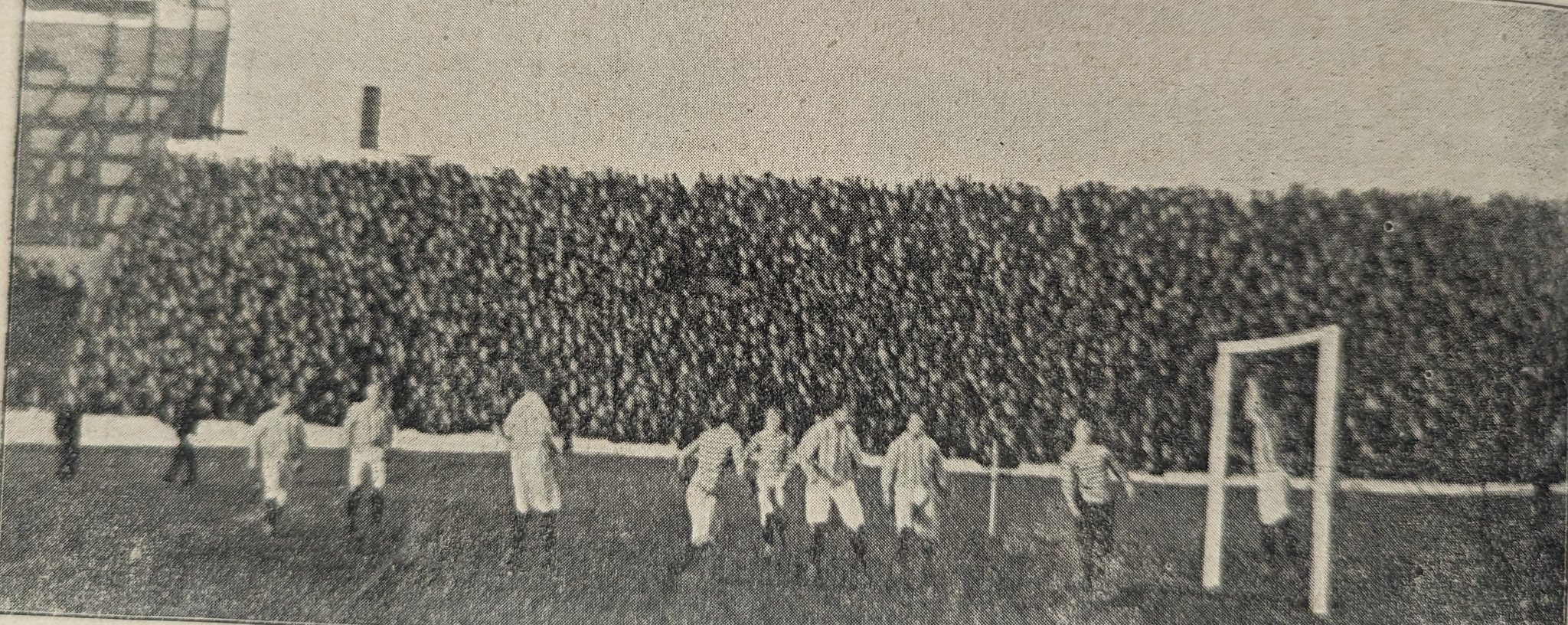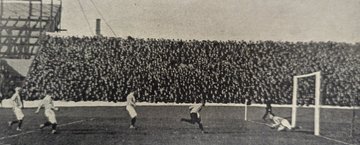Match Pictures | Matches: 1899 – 1900 | 1900 pics
The mark of a change from one era to the new era
Trivia
- Scottish Cup Final
- Game marked the successful transition from the old amateur (shamateur?) days to the professional game
- Key to highlight Celtic’s successful progression whilst others floundered.
- Queen’s Park last Scottish Cup final
- Match played at Ibrox Park.
- The end of the original Glasgow derby; in the early days it was Queen’s Park and not Rangers who were the establishment club, although Celtic & Rangers had by this point long surpassed Queen’s Park.
- This was the first final at the new Ibrox making Celtic the first team to win a trophy there! Like Celtic Park, the current Ibrox is not the first location to have this name. Rangers went to the first Ibrox in 1887, the same year Celtic were formed. Then, in 1899, Rangers moved a short distance to the current site.
Review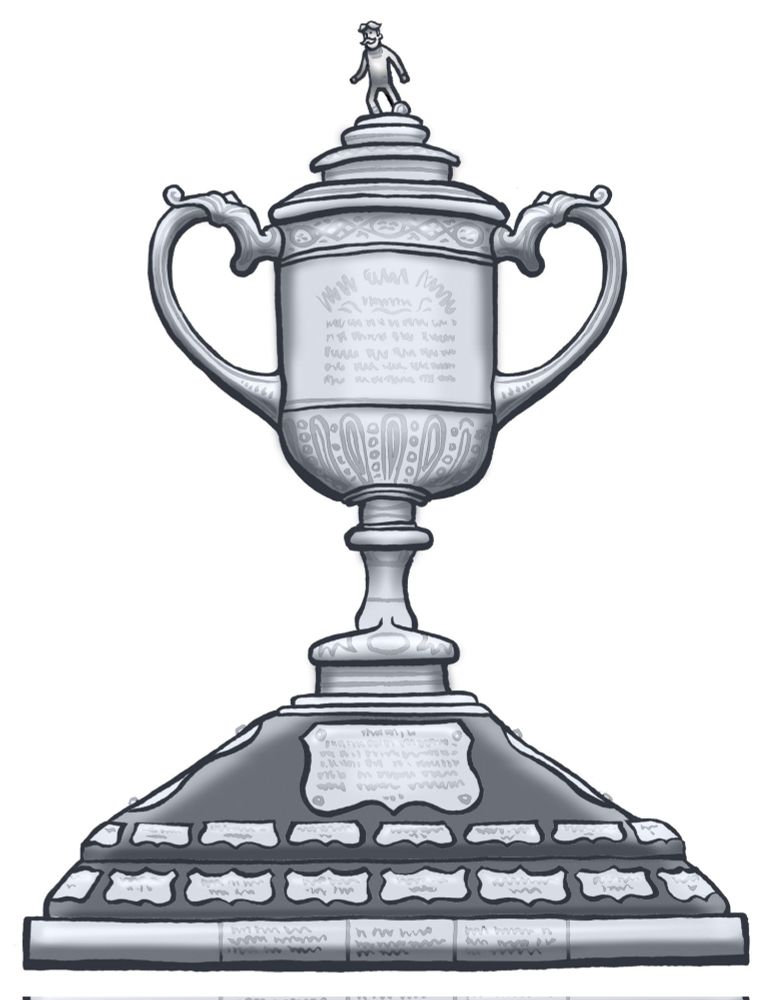
This game signifies the end of one era and the successful establishment of the professional game in Scotland. In the earliest days, the original big Glasgow derby for Celtic could be deemed to have been more Celtic v Queen’s Park (and not necessarily Rangers). Queen’s Park was not just the club supported by the establishment, it actually WAS the establishment club and owned by them (and still is to this day).
Back then Queen’s Park was seen by those with an agenda as representing the Scottish communities against the upstart Irish communities (or “Scot v Celt” (sic!) as one match was labelled back then), and so was seen as a Protestant club having its origins in a Protestant YMCA. So for early days of any derby tension and rivalry this was a major match to watch out for in Scotland.
The question then is why did this change? There are various reasons. The growth of Rangers taking on the mantle from Queen’s Park was primarily due to that Queen’s Park was too tightly controlled by the old conservative elite in Scotland, and effectively they promoted the Corinthian spirit idea of the amateur as the ideal, and eschewed any thought of professionalism. In effect, this myopic view led to the sharp downward spiral of what was then one of the world’s most successful clubs (Queen’s Park), and to this day Queen’s Park have remained an archaic amateur club. The sad result was that Rangers were able to take advantage of this and in time enforce their bigoted sectarian views as they became the sole standard bearer for the establishment.
Maybe if Queen’s Park had adopted professionalism and modernised, like Celtic did, then Rangers would have become small fry. It’s possible but the shipyards in Govan did give Rangers a level of patronage that enabled them to grow from there as well (especially once the Ulstermen emigrated over). However, the head start Queen’s Park had could likely have enabled them to stay one step ahead of Rangers and today we likely could have been talking about the “Old Firm” game during the 20th Century having been really between Celtic and Queen’s Park, but it’s not.
Queen’s Park is thus a Scottish Football icon (an “Ozymandias” you can say) to any club who wants to live in the past and espouse traditions alone as reason for their existence.
This match was Queen’s Park last Scottish Cup final and few if anybody would likely have thought at the time that it was going to be so. It was and has become a key point for Celtic in highlighting the club’s successful transition from (sh)amateurism to the professional game whilst others floundered. It was a victory for the Celtic board who had prepared and fought for the professional era against the self-serving sanctimonious diatribes from various parties.
One of the ironies of this match, in retrospect, is that the final was held at Ibrox Park (home of Rangers).
Despite the retrospective professional v (sh)amateur tag of this match, it was the amateurs of Queen’s Park who opened the scoring; however Celtic fought back strongly led by Sandy McMahon. Criticised for over-doing his running with the ball, this time McMahon was in charge, scoring the equalizer and then set up the headed goal by Divers soon after. A third was added before half-time, giving Celtic the upper hand and grabbing a 3-1 lead by half-time
Queen’s Park fought back spiritedly but Celtic won the match 4-3 with a final goal in an exciting game for the spectators.
However, the victory in time represented more than just another name cut into the trophy, and that is why it will always be remembered.
Teams
Celtic:
McArthur ,Storrier ,Battles ,Russell ,Marshall ,Orr ,Hodge ,Campbell ,Divers ,McMahon ,Bell
Goals: Bell, Divers (2), McMahon
Queen’s Park:
Gourlay ,Stewart ,Swann ,Irons ,Christie ,Templeton ,Stewart ,Wilson ,McColl ,Kennedy ,Hay
Goals: Battles, Christie, Stewart
Bookings: None
Att: 15,000
Stadium: Ibrox Park
Articles
- Match Report (see below)
Pictures
- Match Pictures
Reports
Glasgow Herald April 16th 1900
